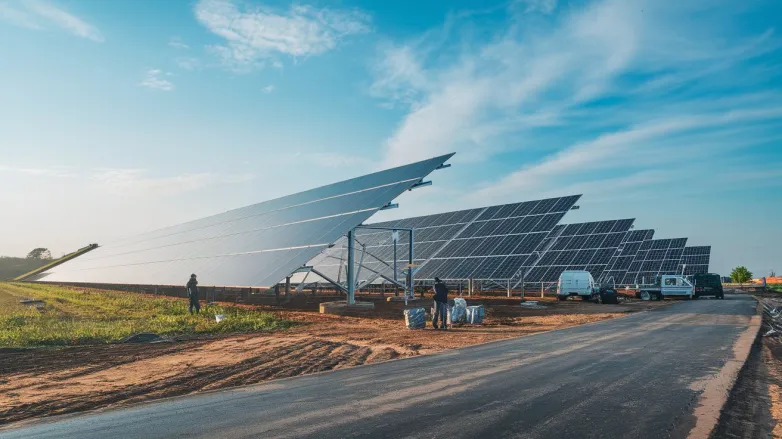Nofar Energy Secures €110 Million for Romanian Solar Farms
- Nofar Energy lands €110 million to power Romania’s renewable future with two new solar farms, boosting sustainable energy capacity and aligning with EU climate goals.

Nofar Energy, an Israeli renewable energy company, has secured EUR 110 million (USD 122.3 million) in financing to develop two solar farms in Romania. The European Bank for Reconstruction and Development (EBRD) is providing a EUR 55 million loan, with Raiffeisen Bank International matching that amount through tranches of EUR 25 million and EUR 30 million. The EBRD loan benefits from a first loss guarantee from the European Union's InvestEU program.
The funds will facilitate the construction of the 169-MW Iepuresti and 146-MW Ghimpati solar farms in Giurgiu County, which are projected to generate approximately 386 GWh of electricity annually. This initiative aligns with Romania's goal to enhance its renewable energy capacity by adding 11.9 GW by 2030, according to EBRD's Head of Energy Europe, Grzegorz Zielinski.
How will Nofar Energy's financing impact Romania's renewable energy goals?
Certainly! Here’s an expanded view on how Nofar Energy’s financing impacts Romania’s renewable energy goals presented in a bulleted list:
- Increased Renewable Capacity: The development of the 315 MW combined capacity from the Iepuresti and Ghimpati solar farms represents a significant contribution toward Romania’s goal of adding 11.9 GW of renewable energy by 2030, helping the country transition to cleaner energy sources.
- Job Creation: The construction and operation of these solar farms are projected to create numerous jobs, both directly in the renewable energy sector and indirectly through local supply chains and related industries, bolstering local economies in Giurgiu County.
- Attraction of Investment: The financing secured by Nofar Energy can signal to other investors that Romania is becoming an appealing destination for renewable energy investments, potentially leading to further projects and a more robust energy market.
- Reduction of Carbon Emissions: By generating approximately 386 GWh of electricity annually from renewable sources, the solar farms will contribute to reducing Romania's carbon footprint and help the country meet its international climate commitments under the Paris Agreement.
- Energy Security and Independence: Increasing the share of renewables in Romania’s energy mix enhances energy security and decreases reliance on fossil fuels, which can be influenced by market volatility and geopolitical tensions.
- Support for EBRD and EU Objectives: The financing aligns with broader European initiatives, such as the EU Green Deal, which aims to promote sustainable energy projects across member states, thereby bolstering cooperation between Romania and EU institutions.
- Development of Local Renewable Expertise: Large-scale projects like these will help cultivate local expertise in the renewable energy sector, providing training and capacity building for future projects, which is crucial for long-term sustainable growth.
- Encouragement for Policy Reforms: Successful implementation of these solar projects may prompt Romanian policymakers to adopt more favorable regulations and incentives for renewable energy development, further accelerating the transition to a sustainable energy landscape.
- Technology Transfer and Innovation: The involvement of an established international company such as Nofar Energy can facilitate the transfer of advanced solar technologies and practices, promoting innovation in the Romanian renewable sector.
- Positive Public Perception and Awareness: High-profile renewable projects enhance public visibility and awareness of the importance of sustainable energy transitions, potentially leading to greater community support for future renewable initiatives.
In summary, Nofar Energy’s financing for solar farms in Romania is not just a corporate investment; it represents a foundational step towards achieving the country's renewable energy targets while fostering economic and environmental benefits.
Also read

